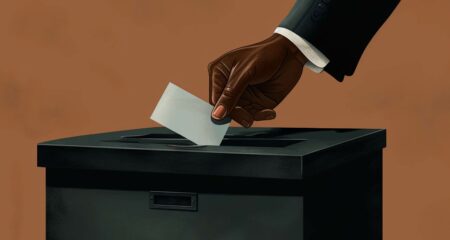
[By Tim Shier]
Did you speak about the ANC’s disciplinary hearing against Youth League president Julius Malema with friends or colleagues? Perhaps you posted a status update online about it, tweeted about it or even commented on a news article.
My company, online reputation management specialist BrandsEye, extensively monitored Tuesday’s conversation and discovered through our research that more than 5 000 people took online part in the conversation about the disciplinary across the country. Based on their respective levels of influence, this conversation reached an astonishing 8,4m people by our estimates.
Had that conversation been purchased in advertising, it would have cost R1,9m. That’s a considerable amount of negative coverage that we ourselves generated about our own country.
There were 6 286 individual mentions posted online about the hearing across the Internet on Tuesday alone.
To illustrate just how much conversation that is, it’s significantly more than what was generated for finance minister Pravin Gordhan’s budget speech, which received only 812 mentions, and more than the state of the nation address at 3 352 mentions. Even large telecommunications brands in SA can only expect to receive about 250 mentions a day.
About 68% of this conversation (4 274 mentions) happened on Twitter, with Facebook accounting for 20% of the total volume (1 257 mentions). About 1,5% of this conversation came from press websites themselves, with journalists reporting live from the ANC’s Luthuli House headquarters accounting for 4,5% of the conversation.
But what did people talk about and what did they think of yesterday’s events? Malema himself was the top theme of conversation, featuring in 94% of mentions. About 9% of conversation endorsed the Youth League and its actions, while 61% spoke neutrally and 30% of people having displayed negative sentiment.
President Jacob Zuma featured in 15% of conversation (946 mentions), while ANC secretary-general Gwede Mantashe (359 mentions) and Youth League spokesman Floyd Shivambu (230 mentions) drove 6% and 1% respectively.
Supporters of the Youth League however condemned the corruption and the, “tenderneurship” within the ANC. “Viva Malema, Viva Youth League” and “Malema — the next president” were also quite common within this conversation.
With 514 mentions, the presence of the schoolchildren in the protests caused 8% of the total conversation. These ranged from disgust to shock to comments like “Why aren’t they in school?”
There is increasing Internet penetration in SA as cellphones capable of accessing online content become more and more affordable. Moreover, as SMS and call prices remains particularly high, talking to friends and family via cheaper-to-access social networks and online chat services will become a more realistic and preferable option for most South Africans.
As Internet penetration rates improve, tracking what South Africans have to say about current events like what happened yesterday at Luthuli House will become more representative of the entire population’s opinions.
Interestingly, 5% of the coverage came from the US and the UK and a further 3% from other European countries. Brazil and several Asian countries also featured.
SA relies heavily on having a positive image overseas, not just from the industries we export being well received but also in promoting foreign direct investment and trade growth.
We need to be mindful of what we’re putting out to the world. South Africa can’t afford to have nearly R2m worth of negative coverage. This just goes to show that even at government and political level, online reputation management is critical to how others perceive us, not just online but in the real world as well.
- Subscribe to our free daily newsletter
- Follow us on Twitter or on Facebook




